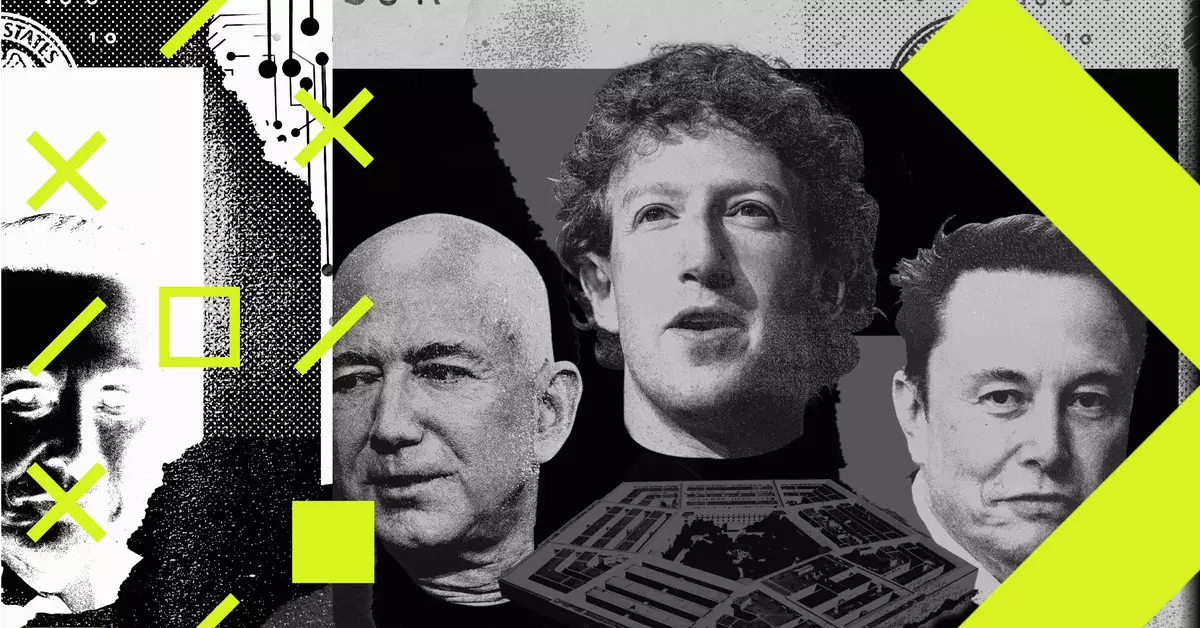The arrival of the Trump administration’s second term has ushered in a new and uncertain landscape for technology companies, particularly in regard to issues surrounding free speech, censorship, and the control of information. As we witness major shifts in how platforms like Meta and TikTok operate, it’s imperative to delve deeper into the implications of these changes.
In recent weeks, the tech world has been rocked by a series of controversial decisions from major players. Meta, for instance, has implemented new policies that blur the lines on hate speech, allowing for increased usage of slurs and intolerant language on its platforms. Simultaneously, TikTok has faced a tumultuous back-and-forth of being banned and reinstated, putting users in constant limbo. These developments symbolize not just corporate decisions but also reflect a larger, chaotic intersection of state and corporate power, where unprecedented control over online discourse is becoming the norm.
The implications of such shifts extend beyond the safety of online communication; they speak to a growing power struggle between billionaires and the government, with the everyday internet user caught in the crossfire. Large tech companies are increasingly becoming some of the most influential entities, effectively holding a significant stake in geopolitical conflicts.
To sift through these complexities, it’s essential to consider legal opinions on the matter. Legal scholars like Kate Klonick, who express concerns over the inconsistencies in how the Trump administration approaches regulatory oversight of tech giants, raise valid questions about the future of free speech on the internet. With new policies designed to cater to the whims of powerful individuals, there is a perilous ambiguity regarding accountability and transparency.
For instance, Mark Zuckerberg’s recent announcement about shifting content moderation practices on Meta’s platforms has caused alarm among critics. By abandoning fact-checking in favor of community-sourced moderation, Zuckerberg appears to be courting a more chaotic and potentially harmful environment. This shift has been characterized as a “MAGA heel turn,” illustrating how personal, political, and corporate interests can now intertwine in ways that undermine previously established norms around content regulation.
Furthermore, the tension surrounding these platforms isn’t solely a domestic issue; it has international ramifications as well. The European Union’s Digital Services Act has imposed strict regulations that could drastically impact how social media companies operate, posing serious challenges to their profitability and freedom. Trump’s alignment with Zuckerberg could signify a new American approach to global tech regulation — one where political allegiance overrides the potential consequences of capitulating to big business interests.
In this way, the Trump administration’s maneuvers reflect a newfound ideology — one that prioritizes immediate outcomes, often ignoring the fairness or legitimacy of the processes that lead to those outcomes. This “results over process” mentality can spawn significant issues, including potential corruption and the erosion of democratic values.
The TikTok Conundrum and Broader Implications
Take TikTok, for example. Congress passed a law designed to protect users from perceived threats by banning the platform unless it severed its ties to Chinese ownership. However, the Trump administration’s decision to overlook this law for strategic political gains complicates the narrative. The threat of punitive action hangs heavily over major tech players like Apple and Google, who are hesitant to reinstate TikTok in their app stores, thus sidelining a massive user base.
The administration’s radical notion of having the U.S. government seize a significant stake in TikTok prompts critical questions surrounding the First Amendment. Such actions not only erode the foundational principles of free speech but also laugh in the face of the separation between corporate and governmental interests.
The current state of affairs surrounding major tech companies and their interactions with the government signals a troubling trend for the future of online discourse. As these platforms realign under the influence of chaotic political maneuvers, the very essence of free expression could be at risk.
Complex problems require nuanced solutions, yet the path forward remains obscured by power struggles and restrictive policies. As users, we must advocate for an internet where free speech is upheld, diversity of thought is celebrated, and corporate interests don’t overshadow fundamental democratic principles. Without vigilance, the transformation of our digital landscapes may lead to a bleak future.


Leave a Reply